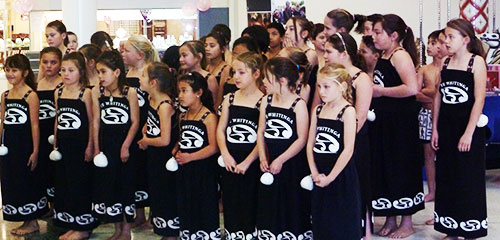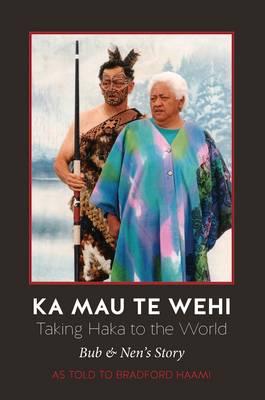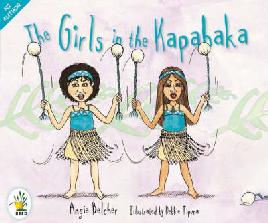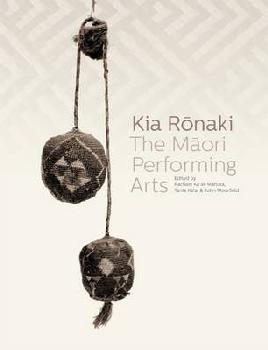Kapa - to stand in a row
Haka - to dance
Kapa Haka is commonly used to describe a modern day performance of traditional and contemporary adaptations of Māori waiata, mōteatea, poi and haka.
The prestigious Te Matatini National Kapa Haka Festival was held in Christchurch in March 2015.

Kapa haka is an avenue for Māori people to express their language, culture and heritage through song and dance. It occurs in both informal and formal settings - on marae and sports fields, at iwi, Māori, hapū and whānau events, in schools and education organisations, in community and business settings, and at Kapa Haka shows, events and competitions.
Kapa haka can be competitive or non-competitive. It can be performed by any number of people, men and women, young and old.
Music for kapa haka is primarily vocal and sung in te reo Māori (Māori language). The musical instruments generally used in kapa haka are the guitar, the pūtātara (conch shell), the sound of the poi and rākau and body percussion.
Competitive Kapa Haka
A competitive kapa haka performance is made up of several disciplines:
Waiata Tira
Group dynamic singing, example being chorals and hymns.
Whakaeke
A choreographed entrance onto the performance area. Can be used to announce the arrival of the group; pay respects to the host or other groups performing, comment on a social issue of the day, or commemorate an individual or element of Māoridom.
Mōteatea
Usually traditional chants or dirges, although contemporary compositions are growing. Mōteatea come in a variety of forms, including laments, lullabies and songs about revenge, anger and love.
Waiata-ā-ringa
Typically referred to as “action songs”, where arm and hand movements particularly the wiri (trembling of hands), the face, the eyes, and the body combine to bring form to the words being sung.
Poi
Involves the twirling of a ball or balls attached to a length of cord in rhythm to sung accompaniment.The poi originates from the pre-colonial practice of training with poi to improve agility in battle. Today poi is used to showcase the grace, beauty and allure of the women.
Haka
The war dance or challenge - an aspect of Māori culture that has become a world-renowned expression of New Zealand identity. Modern day haka are vocal performances, involving aggressive or challenging facial expressions, body movements and demeanour.
Whakawātea
A choreographed exit off the performance area. Used to farewell the audience or make a final point before departing.
Kapa haka resources
- Search for kapa haka resources in the library catalogue.
- Search for kapa haka on DigitalNZ, including a set Kapa Haka
- Te Papa Kāinga ō te haka - The Home of Haka on Māori Television
- Valance Smith. Kapa haka – Māori performing arts - What is kapa haka?, Te Ara - the Encyclopedia of New Zealand
- Ngā Hua A Tāne Rore : the Benefits of Kapa Haka Report by Dr Jillian Tipene for Te Manatū Taonga - The Ministry of Cultural Heritage
- Kapa haka images from Canterbury Stories
Te Matatini National Kapa Haka Festival



